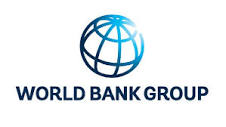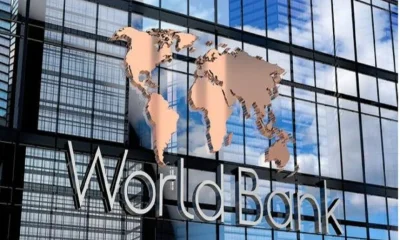News
Nigeria’s Poverty Reduced By Seven Per Cent – World Bank

The World Bank has estimated that improved access to internet coverage over three years led to a seven per cent reduction in extreme poverty in Nigeria and Tanzania.
World Bank report highlighted how Nigeria and Tanzania achieved a 7% reduction in extreme poverty in 2023.
According to the Bretton Woods institution, the feat came as a result of improved access to internet coverage over three years or more in these two countries.
In the brief titled ‘Digital transformation drives development in Africa,’ the World Bank also noted that labour force participation and wage employment increased by up to 8% within the same period.
The report said, “In 2023, a World Bank flagship report found that in Nigeria and Tanzania, extreme poverty declined by about seven per cent after three or more years of exposure to internet coverage, while labour force participation and wage employment increased by up to eight per cent.”
Quoting the World Bank Chief Economist for Africa, Andrew Dabalen, the brief stated, “The minimal usage of mobile internet is a lost opportunity for inclusive growth in Africa. Closing the uptake gap would increase the continent’s potential to create jobs for its growing population and boost economic recovery in a highly digitalised world.”
It further highlighted that between 2016-2021, sub-Saharan Africa recorded an exponential 115% increase in internet users, a development described as instrumental in spurring economic growth, fostering innovation, and creating job opportunities.
“The region’s digital infrastructure coverage, access, and quality still lag other regions. At the end of 2021, while 84 per cent of people in SSA lived in areas where 3G service was available, and 63 per cent had access to 4G mobile coverage, only 22 per cent were using mobile internet services.
“The gap between coverage and usage is similarly large for broadband, with 61 per cent of people in sub-Saharan Africa living within the broadband range but not using it,” the brief added.
-

 News5 days ago
News5 days agoOkemesi Dies After Slipping Into Coma
-

 News4 days ago
News4 days agoLabour Issues Friday Deadline To FG Over Three-Month Unpaid Wages
-

 News4 days ago
News4 days agoOsun New Era Lions Club Urges Residents To Use Government-Certified Hospital
-

 Politics3 days ago
Politics3 days agoMy Meeting With Makinde Based On Friendship, Not Politics Says – Kwankwaso










